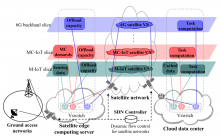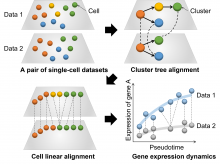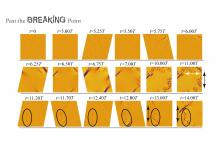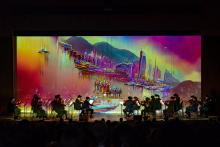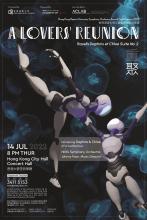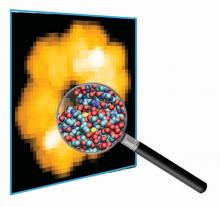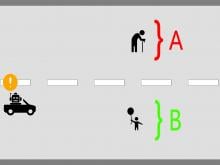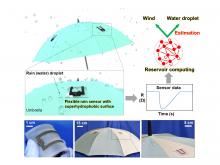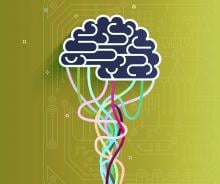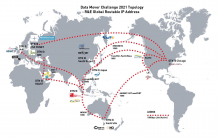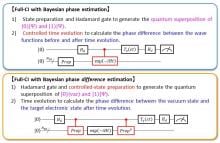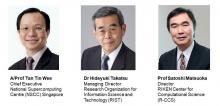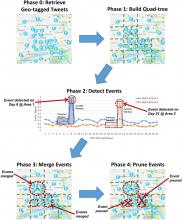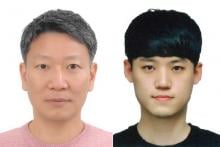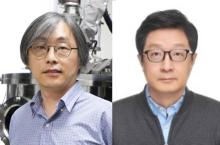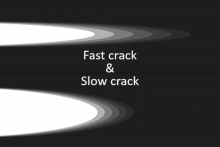Computer Science
News
19 Oct 2022
- A joint research team led by Professor Jeongho Kwak of DGIST and Professor Jihwan Choi of KAIST developed efficient edge-computing offloading and network-slicing techniques for next-generation LEO satellite networks.
- This technology, which has drawn Elon Musk's attention, is expected to be used for high-speed streaming and computing services in communication-isolated areas during the era of “future satellite networks.”
14 Oct 2022
Researchers from Osaka University have developed a computational analysis tool called CAPITAL for comparative analysis of single-cell RNA sequencing data with complicated branching trajectories. As cells undergo a dynamic process, they can be placed on a “pseudotime trajectory” to analyze the gene expression changes throughout the process. While previously only straightforward linear trajectories could be compared, CAPITAL is proven to be able to accurately compare branching trajectories, significantly advancing the field of high-throughput single-cell sequencing.
11 Oct 2022
Researchers at The University of Tokyo simulated fractures in amorphous materials due to both cyclic fatigue and constant stress using course-grained dynamics, and demonstrated various failure modes, which can help improve reliability of materials
07 Sep 2022
To automatically generate data for training deep convolutional neural network models to segment building facades, researchers from Osaka University used a three-dimensional model and game engine to generate digital city twin synthetic training data. They found that a model trained on these data mixed with some real data was competitive with a model trained on real data alone, revealing the potential of digital twin data to improve accuracy and replace costly manually annotated real data.
04 Aug 2022
When the evolution of towns and of roads are modeled together, the natural landscape alone is enough to predict the actual arrangement of real towns.
02 Aug 2022
A pioneering and bold attempt to apply artificial intelligence (AI) technologies in the performing arts was carried out by Hong Kong Baptist University (HKBU) in a public concert held on 14 July in Hong Kong.
The innovative performance was the first human-AI collaboration of its kind in the world, and it showcased how AI can be a creative force that can perform music, create cross-media art, and dance.
06 Jul 2022
The Hong Kong Baptist University Symphony Orchestra (HKBU Symphony Orchestra) will present an innovative performance showcasing human creativity alongside artificial intelligence at its Annual Gala Concert, to be held on14 July (Thursday) at 8:00pm in the Hong Kong City Hall.
20 Jun 2022
Atomic force microscopy (AFM) allows to visualize the dynamics of single biomolecules during their functional activity. All observations are, however, restricted to regions accessible by a fairly big probing tip during scanning. Hence, AFM images only the biomolecular surface with limited spatial resolution, missing important information required for a detailed understanding of the observed phenomena.
03 Jun 2022
A research team has studied how humans react to the introduction of AI decision making. Specifically, they explored the question, “is society ready for AI ethical decision making?” by studying human interaction with autonomous cars.
13 May 2022
The new multi-tasking weather sensor simultaneously measures rain volume and wind speed. Incorporating machine learning to analyze the output data, a single sensor can provide localized weather data in a timely manner, improving disaster preparedness.
30 Mar 2022
199 Gold, 188 Silver and 56 Bronze were awarded
07 Mar 2022
Neurone-like junctions made of mixed oxide-based materials could reduce the massive energy consumption of artificial intelligence operations.
02 Mar 2022
The SupercomputingAsia Conference recognised key HPC pioneer-leaders with its annual SCA22 Awards. The winning teams from Asia, Australia and the US were also announced at the awards ceremony for the international Data Mover Challenge 2021 (DMC21) competition.
23 Feb 2022
Computer game uses a camera and AI-based movement recognition to teach sign language to a broader public.
14 Jan 2022
Just like explorers need maps, scientists require guides to better understand and advance new technology. A neuromorphic device, which can mimic the neural cells in our brain, has lacked such a guideline and created headaches for scientists trying to understand their operational mechanisms. That is until now after a research group created a map that provides rational design guidelines for neuromorphic devices, paving the way for advancements in brain-inspired computers.

22 Dec 2021
Scientists predict that continued global warming under current trends could lead to an elevation of the sea level by as much as five meters by the year 3000 CE.
30 Nov 2021
Despite significant advancements in computing technologies, they pale in comparison to the energy efficiency of human brains. Now, researchers from Tohoku University and the University of Gothenburg have developed a new spintronic technology for brain-inspired computing.
26 Nov 2021
In a continuing effort to improve upon previous work, a research team at the Graduate School of Science, Osaka City University, have applied their recently developed Bayesian phase difference estimation quantum algorithm to perform full configuration interaction (full-CI) calculations of atoms and molecules without simulating the time evolution of the wave function conditional on an ancillary qubit. Superior to conventional methods in terms of parallel execution of quantum gates during quantum computing, this new algorithm is expected to be much easier to implement in actual quantum computers.
23 Nov 2021
Prof. Jae Youn Hwang, DGIST, developed a domain-adaptive deep learning technology for object segmentation with state-of-the-art performance
19 Nov 2021
A new agreement between Japan’s Research Organization for Information Science and Technology (RIST) and National Supercomputing Centre (NSCC) Singapore opens the path for Singapore researchers to regularly access and request for supercomputing resources from the world’s most powerful supercomputer, Japan’s Fugaku system. In the first such arrangement of its kind outside of Japan, Singapore researchers can now apply for available resources through an annual Call for Projects to Fugaku, which will be coordinated by NSCC and RIST.
22 Oct 2021
Scientists develop new algorithm for rapid, computerized diagnosis of COVID-19, overcoming the limitations of reverse transcription polymerase chain reaction
01 Oct 2021
Scientists propose an advanced network architecture that promises to overcome the drawbacks of traditional networks.
24 Sep 2021
As part of its aim to improve business and government agency efficiencies through the use of Information and Communications Technology (ICT), the Advanced Science and Technology Institute (DOST-ASTI), a research and development institute of the Department of Science and Technology, has signed a 3-year partnership with Bizooku Philippines on 27 August 2021.
24 Sep 2021
An algorithm that detects events occurring across different time and geographical scales on social media could enable a more timely response to emerging events.
02 Sep 2021
Researchers have developed a general quantum algorithm that can directly calculate the energy difference of an atom and molecule using a quantum computer. By avoiding the need to calculate the total molecular energies, the general algorithm is expected to be applied not only to quantum chemical calculations but also to various physical and mathematical problems, which are intractable with nowadays classical computers.
01 Sep 2021
Prof. Jae Youn Hwang's team, DGIST, develops deep learning technology to segment buildings from aerial images
20 Aug 2021
Scientists create a new process control model to protect systems from assailants and natural fluctuations
06 Aug 2021
Development of a deep learning technique that reduces the difference between image domains by separating and converting domain information of image capturing environments
04 Aug 2021
Combining two magnetic effects can manipulate the magnetic behaviours of a device, offering a novel opportunity for the next generation IT technologies.
30 Jul 2021
Researchers from The University of Tokyo Institute of Industrial Science develop an experimentally supported mathematical model that defines the velocity jump mechanism in crack propagation
Events
Sorry, nothing coming up for this discipline
Researchers
Sorry, nothing coming up for this discipline
Giants in history
Sorry, nothing coming up for this discipline


